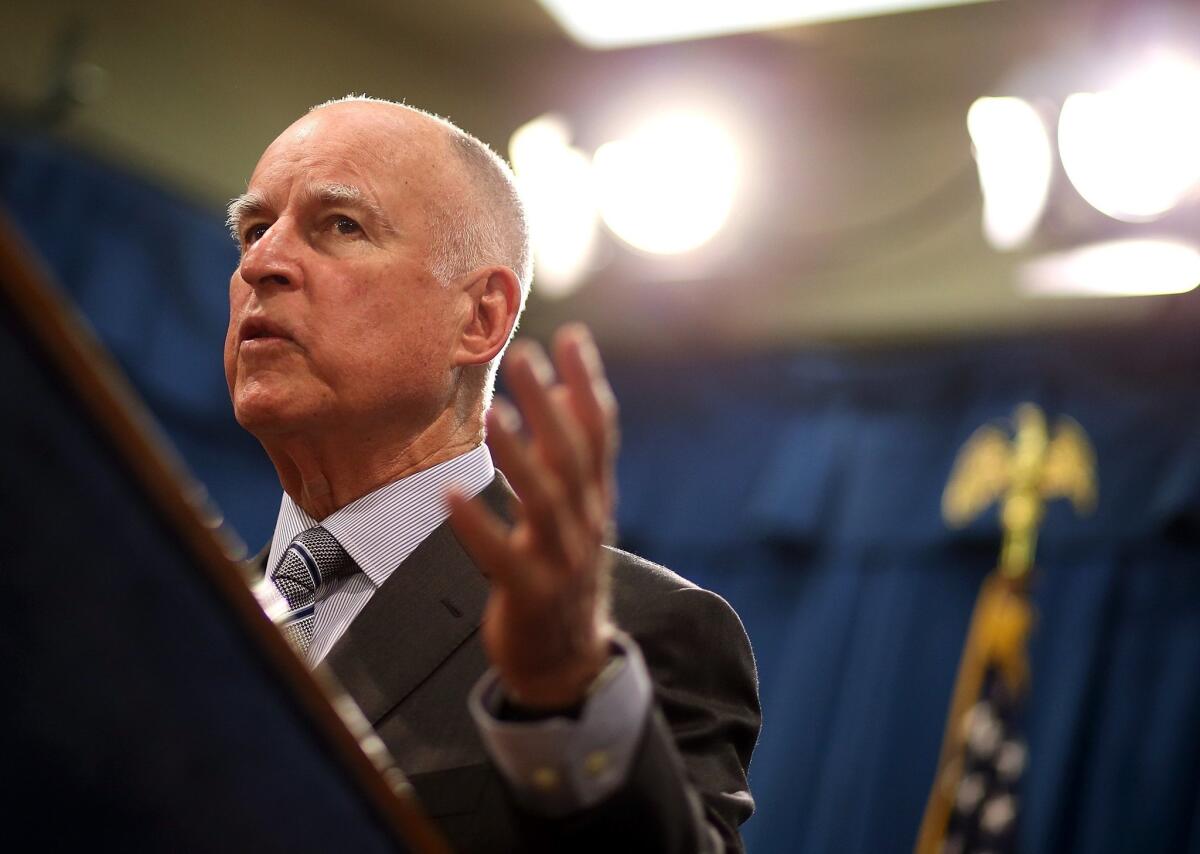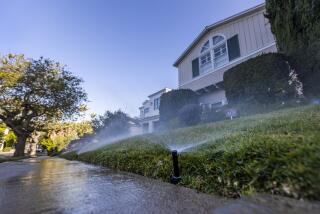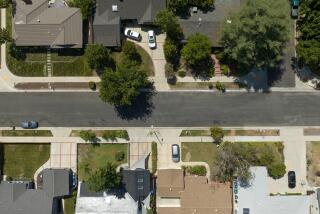Editorial: Water restrictions are just a taste of what’s to come for California

- Share via
Action on Tuesday by the State Water Resources Control Board to restrict lawn watering and home car-washing made big news outside of California but barely raised eyebrows in-state. That’s because most urban agencies had already imposed those kinds of limits more than a year ago. Californians responded initially with big water savings but let the hoses and sprinklers run again toward the end of last year, as the Sierra snow began to fall and it was easier to hope — to pretend — that the dry times were behind us.
It’s clear now that’s not the case. This winter was a bit wetter than last, but that’s not saying much. There has been too little precipitation to replenish the reservoirs and aquifers that water users have been drawing down during the dry times. There’s enough water for the coming year and the year after that besides — but not at the current rate of use, and certainly not if wet winters don’t resume.
Stored water is a kind of bank account meant to get users through an arid year or two, but it cannot be expected to preserve the state through an extended drought like the one that afflicted Australia for a decade and a half beginning in the 1990s. Australians didn’t know, the first couple years in, that their dry streak would go on for so long. By year four, though, the drought’s historic nature had become clear. In this fourth year of drought here, Californians must begin using water as though they are still at the front end of that sort of cataclysm.
So the water board’s action shouldn’t be taken as the last word on restrictions. Soon the Metropolitan Water District of Southern California will limit deliveries to its customers, including the city of Los Angeles, which must consider whatever alternative supplies are at its disposal and then impose additional mandates accordingly. Other water agencies are doing the same.
Australia responded to the so-called millennium drought by permanently changing the way it produces and delivers water, becoming a global leader in recycling and conserving. California has dabbled in such things for decades, but it’s now evident that the state must do Australia-style rethinking and move quickly to Australia-style action. The $1-billion emergency measures announced Thursday by Gov. Jerry Brown and legislative leaders are fine for near-term relief, but fall far short of what’s needed to respond to what may well be our own millennium drought.
Follow the Opinion section on Twitter @latimesopinion and Facebook
More to Read
Sign up for Essential California
The most important California stories and recommendations in your inbox every morning.
You may occasionally receive promotional content from the Los Angeles Times.













